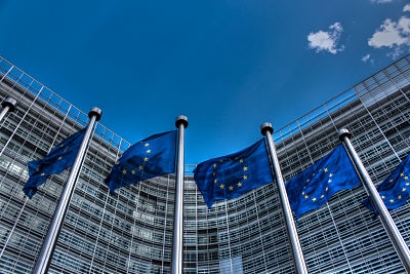
EU Member States have until the end of the year to bridge current gaps and EU energy ministers have today acknowledged the need to improve their 2030 climate and energy plans.
However, only a few countries such as Ireland, France, Latvia, Slovenia, Cyprus, Bulgaria and Greece have committed to increase their targets for renewable energy, energy efficiency or both to help close the gap towards the 2030 EU energy targets. Denmark has reiterated its commitment to increase its greenhouse gas emission reduction target for 2030 to 70 percent.
In response, Climate Action Network (CAN) Europe has commented that it is time for all Member States to bring their plans closer to the Paris Agreement goals and that the clock is ticking as the deadline for the finalisation of the plans - the end of this year - is approaching.
Member states had to submit their draft National Energy and Climate Plans (NECPs) by 31 December 2018. On 18 June, the Commission published its assessment of the draft NECPs as a whole, accompanied by country-specific recommendations. The communication identified a gap between the national ambition levels and the EU's 2030 targets for energy efficiency and renewable energy.
The gap stems from the insufficient ambition of the national energy and climate targets for 2030, and the lack of informed policies and measures to scale up renewable energy and energy savings and phase out fossil fuel subsidies. Also in many cases commitments to phase out coal are missing, while these are crucial to provide proper support for the just transition of the regions and communities affected by the energy transformation.
The implementation of the recommendations of the European Commission is just the starting point. Member States must see the current EU’s 2030 climate and energy targets as a baseline that they must overachieve in order to allow the bloc to stick to its engagement under the Paris Agreement to limit temperature rise to 1.5°C.
The current EU 2030 climate target of 40 percent greenhouse gas emission reduction, set well before the Paris Agreement, falls far short of the 65 percent reduction needed for the EU to stay on track as evidenced by the Intergovernmental Panel on Climate Change special report on 1.5°C published last year.
“Faced with the climate emergency and the growing concern of citizens over climate change impacts, EU energy ministers must live up to the challenge and design plans that can deliver substantial greenhouse gas emissions cuts, through the swift transition to clean energy” said Wendel Trio, director of Climate Action Network (CAN). “The plans need both higher ambition and more credible policies to meet and exceed in particular the renewable energy and energy efficiency targets, and ensure the phase-out of fossil fuel subsidies as soon as possible.”
For additional information:

